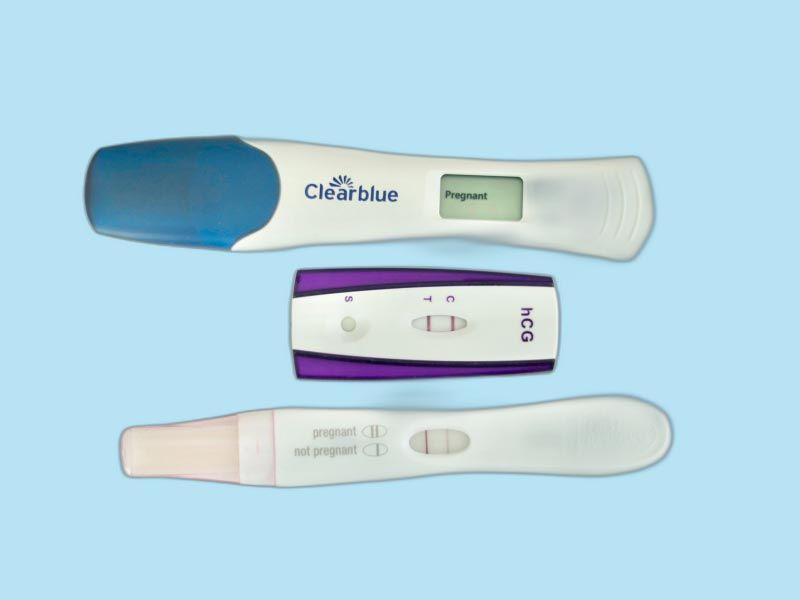
What's the Difference Between ICI and IUI?
By Simona Byler
May 29, 2024
Alright, folks, get ready to enter the world of artificial insemination and assisted reproductive technology. There’s nothing to be afraid of! But, be warned, there are A LOT of acronyms out there, and we’re going to cover them all! We’re here to discuss the difference between intracervical and intrauterine insemination, what washed and unwashed sperm is, and whether ICI or IUI is better for home insemination. Want to know if IUI or ICI is right for you? Keep reading and we’ll find out together.
What is artificial insemination?
Before we jump into the meat of infertility treatments, let’s cover a few basics! First off, we’ll be talking a lot about insemination. Insemination just means introducing sperm into the opening of a female’s reproductive tract–aka vagina. Insemination can happen unassisted through condomless sex or with some technical assistance, called artificial insemination.
As you can imagine, a necessary ingredient in artificial insemination is sperm. And for these procedures, sperm can be either washed or unwashed–but this doesn’t mean it’s dirty! Sperm washing is a preparation process where the healthy and active—or motile—sperm are separated from the rest of the seminal fluid, which may contain non-motile sperm.
Seminal fluid has extra cells, chemicals, and proteins that can cause harmful reactions in certain types of artificial insemination. Unwashed sperm includes all the seminal fluid and has a slightly lower motility, but is preferable for intracervical insemination.
What is ICI?
There are a few different methods of artificial insemination, so let’s talk specifics! **Intracervical insemination (ICI) is a type of artificial insemination where sperm are put into a person’s vagina near the cervix, and it’s often done at home.** With ICI, the sperm is inserted with a needleless syringe or put into a silicone cervical cap that’s then inserted. For best results, you then lie on your back for 15 to 30 minutes to give the sperm time to pass through your cervix.
On the scale of artificial insemination, this is one of the more straightforward options—making ICI a great option for home insemination! Plus, ICI can use unwashed sperm. Your cervix acts as a barrier to the extra parts of seminal fluid and only allows sperm to pass through it. Basically, your cervix uses cervical mucus to perform its own sperm washing!
What is IUI?
Intrauterine insemination (IUI) is a slightly more complex method of artificial insemination. Like the name implies, IUI focuses on the uterus rather than the cervix. During an IUI procedure, sperm is put directly into a person’s uterus using a small tube, or catheter. A medical professional passes the catheter through your cervix and into your uterus and then injects the sperm. IUI can be combined with other infertility treatments that stimulate ovulation or timed with your natural ovulation cycle.
IUI is usually performed at a doctor’s office because inserting the catheter into your uterus is not possible on your own. Some midwives are trained in this process, so IUI can be a home insemination method–though it’s not quite as common.
With IUI, your smart cervix doesn’t get the chance to do its own sperm washing and separate out the extra seminal liquid. Using unwashed sperm can cause painful cramps and harmful reactions–that’s why you need to use washed sperm for IUI.
Key differences between ICI and IUI
Understanding the differences between intracervical and intrauterine insemination can be confusing—and the acronyms definitely don’t help! But choosing between ICI and IUI procedures—and the sperm involved—is an important part of your fertility journey. Here’s a recap of the differences between ICI and IUI.
Insemination location
Where the sperm is deposited is the major difference between these two infertility procedures. With ICI, the sperm is inserted into the back of your vagina, right near your cervix. With IUI, a catheter is passed through your cervix to allow sperm to be injected directly into your uterus.
Type of sperm
We covered that washed sperm doesn’t contain any seminal liquid, while unwashed sperm does. IUI requires washed sperm, and ICI doesn’t. So, that means that you can use washed sperm for ICI, but it isn’t necessary.
Timing
IUI is often used in combination with other forms of fertility treatment, specifically if you’re having trouble ovulating. IUI is timed with ovulation, either natural or assisted, to give the sperm the best chance of fertilizing an egg. For best results, ICI should also be timed with your fertile window, but the unwashed sperm can survive in your system for upwards of five days. (1)
Home insemination
Plenty of people prefer to skip the doctor’s office if they can, and perform the insemination in the comfort of their home. As a procedure, ICI is better for home insemination, while a medical professional must perform IUI.
Is ICI or IUI better for home insemination?
Alright, we’ve discussed the reasons why ICI is better than IUI for home insemination—as a procedure. And if you’re pursuing artificial insemination, you’ll choose between different types of sperm straws or vials, whether you’re using a donor’s or your partner’s sperm.
We know that ICI uses unwashed sperm, while IUI must use washed sperm. Because of that, the procedure name is often used to describe the sperm. ICI vials contain unwashed sperm. IUI vials contain washed sperm.
Let’s clear up any confusion! Here’s the breakdown of sperm vials and which is better for home insemination.
ICI-ready sperm: ICI-ready sperm is unwashed. Because of this, it’s often a cheaper option when you’re getting the sperm from a donor site. ICI sperm is ready for home semination using the ICI procedure—depositing it into the vagina near the cervix. Your doctor can wash ICI-ready sperm, making it IUI-ready, to then be used in other artificial insemination procedures—like IUI and in vitro fertilization (IVF). Unwashed sperm have slightly lower motility (the ability to move or swim). (2)
If your preferred donor only has unwashed sperm available, your doctor can wash the sperm to be used in other artificial insemination procedures – like IUI and in vitro fertilization (IVF).
IUI-ready sperm: IUI-ready sperm is washed, making it more expensive when getting sperm from a donor site. IUI-ready sperm is already prepped for IUI and IVF procedures. You can use washed IUI sperm for a home insemination ICI procedure, but it isn’t necessary. Washed sperm have slightly higher motility. (2)
So, although IUI-ready sperm has higher motility, there isn’t any conclusive evidence that shows washed sperm performs better when inserted vaginally. That means that unwashed, ICI-ready sperm performs just as well as washed, IUI-ready sperm in home ICI treatments. (3)
Is ICI or IUI sperm better for IVF?
In vitro fertilization (IVF) is another common treatment for infertility, but it’s also one of the most complex! During IVF, both sperm and mature eggs are collected, either from a partner or a donor. The sperm fertilizes the eggs in a lab, and the fertilized eggs are then put back into the uterus to develop.
Like IUI, IVF bypasses your cervix and puts the specimen directly into your uterus. That means that the sperm must be washed for IVF to avoid adverse reactions. But! Your doctor might prefer to wash the sperm in their own lab, rather than receive a pre-washed, IUI-ready sample. Check with your doctor to see if they prefer washed or unwashed sperm for your IVF procedure.
Who is a good candidate for IUI and ICI?
There are plenty of reasons why you might head down the road of infertility treatments. But you might wonder–who’s a good candidate for IUI/ICI? Let’s look at some reasons why artificial insemination might be right for you.
You might consider artificial insemination if you:
- Are a same-sex couple or a single woman
- Haven’t gotten pregnant after one year of unprotected sex if under age 35, or after six months if over age 35
- Are facing mild male infertility: low sperm count, low sperm motility, or ejaculation issues
- Have trouble ovulating due to polycystic ovary syndrome (PCOS)
- Have thick cervical mucus that interferes with sperm
- Have cervical scar tissue from a prior surgery
- Have a history of repeat vaginal infections
Before you commit to home insemination through ICI or IUI at a doctor’s office, it’s important to know that you’re ovulating successfully. If you’re not, you’ll want to check on your ovarian reserve—the number of healthy eggs you have—and ask your doctor about medication that can help stimulate ovulation. Similarly, you’ll want to perform a sperm analysis to check on the health of your sperm.
For plenty of folks, getting pregnant isn’t a simple process. And if you’re having trouble conceiving, understanding your infertility treatment options is a great place to start. We’re grateful that artificial and home insemination procedures exist, for whoever might pursue them. At Wisp, we want you to have access to all the information you need, so you can maintain your medical autonomy and make the decision that’s right for you.
Explore Fertility & At-Home Insemination

The PherDal® At Home Insemination Kit
$199
The only FDA-cleared and 100% sterile solution for at-home insemination.

Hers & His Advanced Fertility Kit by Proov
$169.99
The only all-in-one fertility test kit for couples that covers both male and female testing

Wisp Prenatal Vitamins
Starting at $14
Prepare for & support a healthy pregnancy with essential nutrients for you and baby.


